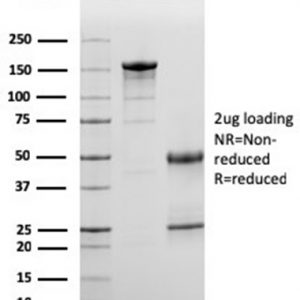Free Shipping in the U.S. for orders over $1000. Shop Now>>

The full-length complement 3 (C3) protein has a molecular weight of approximately 187 kDa. The liver produces this protein, and it is found in the bloodstream as an inactive precursor. It is a key player in the complement system, a complex cascade of proteins that helps the immune system identify and eliminate pathogens, clear damaged cells, and contribute to inflammation. When activated, it undergoes proteolytic cleavage, generating smaller fragments, including C3b, which participates in opsonization (coating pathogens for phagocytosis) and membrane attack complex (MAC) formation, which is involved in cell lysis.
The dysregulation of the complement system, including abnormalities in its function, is associated with various diseases. Deficiencies or abnormalities in C3 can lead to increased susceptibility to infections. On the other hand, excessive or uncontrolled complement activation is implicated in autoimmune diseases, such as systemic lupus erythematosus (SLE), and inflammatory conditions like rheumatoid arthritis.
Antibodies against C3 are valuable tools in research to study complement activation and its role in various physiological and pathological processes. They can be used to detect and quantify C3 levels in biological samples, providing insights into the status of the complement system. In certain diseases involving complement dysregulation, monitoring C3 levels can be informative for diagnosis and disease management. Additionally, antibodies or other agents that modulate C3 activity may have potential applications in conditions where complement dysregulation is a contributing factor.
Complement C3, C3 and PZP-like alpha-2-macroglobulin domain-containing protein 1, CPAMD1; Acylation stimulating protein cleavage product; AHUS5; ARMD9; ASP; C3 and PZP-like alpha-2-macroglobulin domain-containing protein 1; Complement C3c alpha' chain fragment 2; Complement C3d fragment
Cardiovascular, Immunology, Complement System, Infectious Disease, Signal Transduction
Showing the single result

Showing the single result

